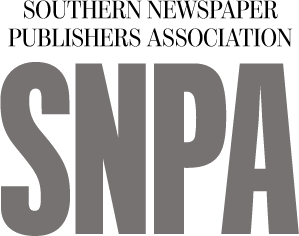Disturbing independent contractor development at the NLRB
The NLRB ruled on Sept. 30 that certain FedEx drivers in Connecticut were employees. If that were all it had decided, it would not be that big of a deal. However, in that case, the Board majority stated:
"We overrule St. Joseph News-Press today, insofar as the decision mistakenly suggests that the Board cannot consider evidence that a putative employer has effectively imposed constraints on an individual's ability to render services as part of an independent business."
The Board in this case fundamentally shifts the independent contractor analysis, for policy-based reasons, to one of economic realities. This economic realities test (1) emphasizes diminished significance of entrepreneurial opportunity and (2) overemphasizes those factors relevant to perceived economic dependency.
The NLRB will use this standard, by stealth, to adopt former Chairman Wilma Liebman's "disparity of bargaining power." Former Chairman Liebman would use a one-factor test. If there was a disparity of bargaining power between the publishing company and the carrier, then the carrier was an employee.
The Obama Board will construe the National Labor Relations Act to find employee status where there is a disparity of bargaining power. The only authority cited by former NLRB Chairman Liebman in her dissent in St. Joseph News-Press were cases from European countries. The majority in St. Joseph News-Press, criticizing the chairman, ruled that the NLRB must follow the U.S. Supreme Court.
The Act was amended in 1947 by the Taft-Hartley Amendments to overrule two Supreme Court decisions that had applied this so-called "economic reality test." Those decisions had stated, "The aim of the Act was to remedy the inequality of bargaining power and controversies over wages, hours, and working conditions." The Taft-Hartley Amendments repealed those decisions.
Since 1947, the Supreme Court has recognized that Congress had effectively reversed those decisions. The independent contractor exclusion was expressly placed into the Act – "Congress clearly and specifically intended that the exemption for independent contractors not be too narrowly construed and that the common law agency test must apply."
There is no authority for the new Board majority proposition that any non-equivalency of bargaining power in a contract must then create employee status. The Board majority seems to be saying that even though a contractor has a contractual right to engage in other economic opportunities, the NLRB will give no weight to that right unless it is actually exercised. But this is inconsistent with the notion of independent contractor status. It is up to the independent contractor just how entrepreneurial he or she wishes to be.
Editor's Note: The Zinser Law Firm, P.C. represented St. Joseph News-Press in its 2005 victory.
Email decision put on hold
In 2007, the NLRB ruled in The Register-Guard that employers could bar employee use of the employer's email system for non-business purposes, including union and other communications protected under Section 7 of the NLRA. The employer did not have to let employees use their email system when it came to union business, including organizing campaigns.
The new general counsel wants to overrule this case. He urged the NLRB to overrule The Register-Guard in Purple Communications, Inc. In that case, the NLRB invited interested parties to file amicus briefs on whether to overrule The Register-Guard.
On Sept. 24, the NLRB announced that it was going to hold the issue for further consideration. It otherwise decided the Purple Communications, Inc. case without deciding the email issue. Why? The NLRB must perceive that the facts in the case were not favorable for a court challenge. It is probably waiting for a better fact pattern to arise.
Editor's Note: The Zinser Law Firm, P.C. represented The Register-Guard in its 2007 victory establishing an employer's right to prohibit unions from using the employer's email system for union organizing purposes.
Finger Lakes Times sails to independent contractor victory
Finger Lakes Times in Geneva, N.Y., has prevailed in what can only be described as a procedurally "screwy" independent contractor case. A former carrier filed an unemployment claim that was processed, and in which there was a hearing, without FLT receiving notice. At this hearing, the carrier claimed he was an employee of FLT, and the ALJ issued a decision finding employee status.
The Department of Labor objected, appealed the case to the Appeal Board, and took the position that the carrier was an independent contractor. The Appeal Board remanded the case back to the ALJ for a hearing on the contractor's independent contractor status. All of this happened without the company's knowledge.
Thereafter, the DOL contacted FLT and investigated the carrier's status. The DOL did not mention the hearing or remand to FLT. The DOL issued a determination finding the contractor to be an independent contractor. Two days later, FLT received notice of a hearing – to be held in four days – to address the carrier's independent contractor status.
FLT presented evidence, in person. The DOL took the position that the contractor was an independent contractor. The contractor did not show up for the hearing. The ALJ issued a new opinion finding, "There is insufficient evidence of supervision, direction, and control to establish an employment relationship."
In writing the opinion, the ALJ relied upon the following factors of independent contractor status to find that the contractor "was not an employee of FLT":
- The signed Independent Contractor Agreement specifying the carrier to be an independent contractor.
- No set work hours.
- No directions on how to deliver newspapers.
- No set sequence of delivery.
- No equipment supplied by FLT.
- The right to utilize substitutes.
- No reimbursements by FLT.
- No group meetings.
- No reports were required to be submitted.
- Complaint resolution was the contractor's responsibility.
- Contract rates were negotiable.
- No need to confer with FLT about taking time off.
- The contractor could refuse a route.
- No benefits were provided to the contractor.
What is surprising in this case is that the DOL representative essentially argued the 10 Significant Factors of Independent Contractor Status contained in "Guidelines for Determining Worker Status: Newspaper and Shopping Guide Publishing Industry." In many other cases involving newspaper publishers in the State of New York, the DOL has taken an opposite approach and has argued that the guidelines are not relevant or controlling.
In cases where newspaper publishers have obtained independent contractor rulings when a judge has followed the guidelines, the DOL representative has appealed to the Appeal Board, which has consistently reversed and found employee status for newspaper carriers. The facts in the FLT case are not significantly different than the facts in the other newspaper cases currently on appeal.
Editor's Note: The Zinser Law Firm, P.C. represented Finger Lakes Times in this case. Additionally, as the ALJ opinion was not appealed, it becomes official Appeal Board decision in New York.
 |
L. Michael Zinser is the founding partner of The Zinser Law Firm in Nashville, Tenn. The firm, which has a heavy concentration of clients in communications media, represents management in the area of labor and employment. Zinser can be reached at (615) 244-9700 or mzinser@zinserlaw.com.






